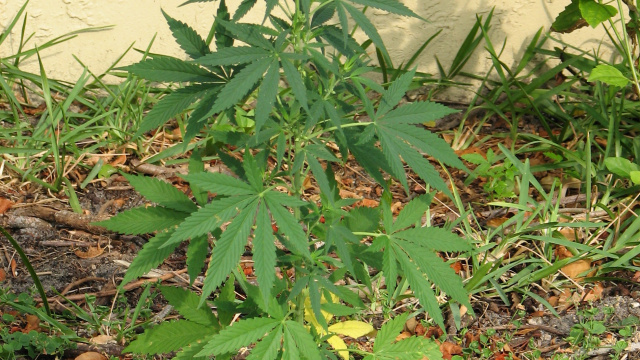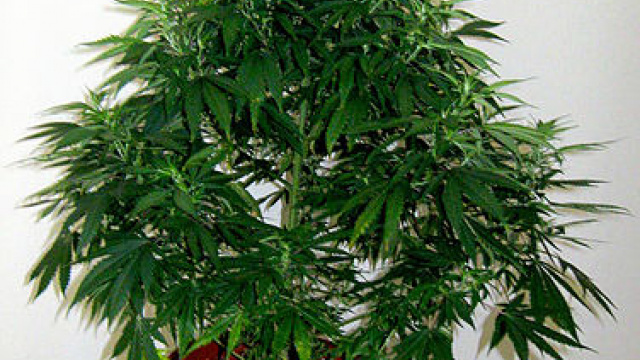 For the first time, national polling shows a majority of Americans — 52 percent of us — favor legalizing marijuana use in the United States. Opposition has dropped to 45 percent.
For the first time, national polling shows a majority of Americans — 52 percent of us — favor legalizing marijuana use in the United States. Opposition has dropped to 45 percent.
The new figures, in a scientifically conducted survey by the Pew Research Center, indicate a dramatic reversal of American public opinion. Support for legalizing marijuana has jumped 11 points just since 2010. Historically, the change is even more dramatic. The first national survey on legalizing marijuana — by the Gallup Poll in 1969 — showed just 12 percent of Americans then in favor with 84 percent opposed.
So what happens now? Are we about to see a rush of marijuana-legalization laws as intense as states’ efforts to legalize gay marriages? Did last fall’s Colorado and Washington votes, making marijuana consumption fully legal within their borders — and not just for medicinal uses — mark a true watershed?
One would like to think so. With full reform, millions of Americans could see their personal preference for marijuana, whether for pain relief or just plain fun, move out of the shadows of illegality.
About 800,000 yearly arrests for marijuana possession could be averted. We might start to pare our prison populations by hundreds of thousands, redeeming lives, reuniting families, saving vast sums of public treasure.
Growing marijuana legally would cut deeply into America’s massive, blood-soaked drug (and gun) trade with Mexico.
Sadly, we may not be so fortunate. Today’s swing toward marijuana legalization may move much more slowly than the rush to recognition and legality of same-sex marriages.
Why such a cautious forecast?
Well, this writer was once burned, seeing reform just around the bend. In a 1977 column, I noted nine states had softened their marijuana-possession laws from criminal offense to mere civil infraction. And that President Carter was asking Congress to reduce the federal penalty for an ounce of marijuana from a year in jail to a civil fine, probably $100.
Polls indicated some trends toward acceptance — and the recognition of prohibition’s futility. I could quote C.O. Sessums Jr., president of the Mississippi Sheriffs Association: “If we were to round up every kid in Sunflower County who smoked marijuana, we wouldn’t have enough left to hold Sunday school.”
So what happened to the 1970s whiff of marijuana reform? Ethan Nadelmann of the Drug Policy Alliance gave me an answer: Back then, marijuana was relatively new in American culture — mostly practiced by a younger generation. Today’s world is different: Half of young peoples’ own parents have tried marijuana. Which makes a huge difference.
So the shift relates to generations, as the new Pew findings underscore, noting the contrasting results by age groups — from respondents of the “Silent Generation” (Americans born before the end of World War II), post-World War II baby boomers (1946 to 1964) Generation Xers (1965 to 1980), and finally Millennials (born since 1980). Here’s how many now favor legalizing marijuana:
Silent generation: 32 percent
Baby boomers: 50 percent
Generation X: 54 percent
Millennials: 65 percent
So there’s no doubt where the future lies. Indeed, 60 percent of all respondents said the federal government shouldn’t even try to enforce national law prohibiting marijuana use in the states where voters have approved its use.
So if demographics are driving us toward marijuana acceptance, isn’t legalization poised to spread rapidly, state to state? If so, why aren’t significant laws crowding legislative calendars?
Perhaps it’s fear that the Obama administration might suddenly decide to get tough on Colorado and Washington, starting to arrest marijuana providers and users in those states. Attorney General Eric Holder has been promising but not delivering an administration position on the two states’ rather bold defiance of existing federal law.
There are real barriers. Quite absurdly, the U.S. government still classifies marijuana as a “Schedule I” controlled substance — meaning it allegedly has no medical use, strong potential for addiction and danger to persons using it.
So the best Holder may be able to do is to declare marijuana prosecution a low priority. This would allow some U.S. attorneys to go after cases of their own volition.
Eventually the legal logjam has to break, as younger generations gain political clout and today’s oldsters pass on. States will almost assuredly be the leaders, first among them likely those, like Colorado and Washington, that opened the door to medical marijuana — California, Oregon, Alaska, Maine, Nevada, Hawaii and Massachusetts.
But there could be surprise shifts, even in conservative states. Pew found rising support scores in all regions. A website, thedailychronic.net, is keeping track. Stay tuned.
Source: Seattle Times (WA)
Author: Neal Peirce, Syndicated Columnist
Published: April 13, 2013
Copyright: 2013 The Seattle Times Company
Contact: [email protected]
Website: http://www.seattletimes.com/



Leave a Reply